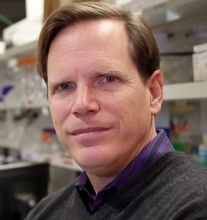
Professor
Department of Chemistry and Biochemistry
Department of Mechanical Engineering
Biomolecular Science and Engineering Graduate Program
UC Santa Barbara
Zoom: Meeting ID 928 7114 0676, Passcode 057979
Abstract: The availability of technologies capable of tracking the levels of drugs, metabolites and biomarkers in real time in the living body would revolutionize our understanding of health and our ability to detect and treat disease. Imagine, for example, a dosing regimen that, rather than relying on your watch (“take two pills twice a day”), is instead guided by second-to-second measurements of plasma drug levels wirelessly communicated to your smartphone. Such a technology would likewise provide researchers and clinicians an unprecedented window into neurology and physiology, and could even support ultra-high-precision personalized medicine in which drug dosing is optimized minute-by-minute using closed-loop feedback control. Toward this goal, we have developed a biomimetic, electrochemical sensing platform that supports the high-frequency, real-time measurement of specific molecules (irrespective of their chemical reactivity) in situ in the blood and tissues of awake, freely moving subjects.
Bio: Kevin Plaxco is a professor at UC Santa Barbara, with shared appointments between the Department of Chemistry and Biochemistry, the Department of Mechanical Engineering and the Biomolecular Science and Engineering Graduate Program. He also serves as associate director of campus’s Center for Bioengineering. Prior to joining UCSB in 1998. Plaxco received his doctorate from Caltech and performed postdoctoral studies at Oxford and the University of Washington. Plaxco’s research focus is on the physics of biomolecular folding and its engineering applications. A major aim of the group’s applied research is to harness the speed and specificity of folding in the development of sensors, adaptable surfaces and smart materials. He has co-authored more than 200 papers and a dozen patents on protein folding, protein dynamics and folding-based sensors, and he is recognized by Thomson Reuters as one of the most highly cited chemists of the prior decade. Plaxco serves on the scientific boards of a half dozen biotechnology firms (several of which are commercializing technologies developed by his group) and has also written a popular science book on astrobiology.
Share
Upcoming Events
-
MSE 298 Seminar: Mechano-Electrochemical Phenomena at Ceramic Electrolyte Interfaces
-
CBE 298 Seminar: Beyond the Tailpipe - From the Science of Soot Formation to the Engineering of Carbon Nanomaterials
-
MSE 298 Seminar: Innovation In Materials Science - An Industrial R&D Perspective
-
MSE 298 Seminar: Understanding the Impact of Grain Boundary Inclination on Grain Growth Using Modeling and Simulation and Experiments
-
EECS Seminar: Mixed Conductors for Bioelectronics
